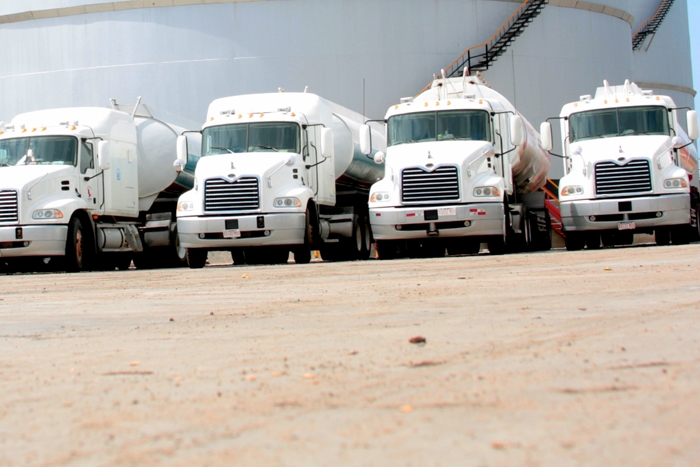Oil and Gas
Deregulation, Way Out For Nigerian Downstream Oil and Gas Sector
By Esikabulu Israel Onochie,
– Senior Oil and Gas Correspondent
The Nigerian downstream sector broadly categorised into the refining and marketing segments of petroleum products have continued to underperform despite opportunities for growth.
Nigeria’s inability to refine adequate petroleum products domestically in order to meet local demand has continue to render the downstream sector vulnerable to foreign exchange volatility particularly for petroleum independent marketers.
Recent efforts to revive the local refineries have failed as they have struggled to refine up to 30.0% of their installed capacities despite the huge amount (US$1.6bn) reportedly spent on repairs and maintenance over the past 19 years.
The tough business operating landscape in the marketing segment however slightly improved in 2016 as petroleum importers enjoyed relative higher margins due to the special exchange rate of N285.00/US$1.00 (parallel market rate stood at c.N305.00/US$) provided by the government, lower oil prices (average of US$49.00) which meant lower associated cost of importation and higher pump price for petrol (from N87.00 to N145.00) which was perceived as being more market reflective.
This was however short-lived as oil prices began to rally in Q4 2016 which implied higher landing costs for petroleum marketers. In addition, the unending delay in subsidy payments which limited access to credit facilities from banks while interests accrued on loans that were obtained, worsened the financial capability of petroleum marketers to import.
Given these arrears, at different times, marketers cut short the supply of fuel to retail stations, particularly during periods of expected high demand of petroleum products as their operations became unsustainable.
Consequently, in January 2017, NNPC in a bid to address the fuel supply challenges within the country assumed the position of importing 100.0% of domestic petrol consumed, restricting marketers to providing logistics like through-put arrangement and storage facilities for the imported products.
Previously, NNPC accounted for about 41.7% of petroleum products importation while major oil marketers – Oando, MRS, Mobil Oil, Total, Forte Oil and Conoil – accounted for the remaining 58.3%. Overall, the petroleum marketing segment is regarded as the most active in the domestic Oil & Gas sector based on the number of participants and the activities thereof.
Between 2014 to 2017, the volume of petroleum products imported into the country has fluctuated despite the surging local demand for various purposes which are essentially used as feedstock for transportation and power generation (both industrial and residential) buoyed by the inadequate power supply which has prompted many business activities to be reliant on these products.
We believe that the contrast between declining petroleum products importation despite strong demand confirms the various claims by government officials that they had been able to curtail the diversion of petroleum products to neighbouring countries. Although, we also allude to the fact that demand has somewhat moderated due to relatively weaker consumer spending impacted by the state of the economy.
The advent of Dangote refinery – which is set to produce 0.65mbpd of refined products – and other modular refineries will significantly impact the current landscape in the downstream sector. We believe that upon completion, these refineries will exceed domestic consumption levels and subsequently export excess refined products to neighbouring African countries.
Closely tied to the growth of the domestic petrochemical subsector is the country’s domestic refining capacity of petroleum products – natural gas and naphtha – which serves as the major feedstocks. The subsector which possess vast potentials for growth given its wide applications such as fertilizer production has been dominated by two companies – Indorama Eleme Fertilizer & Chemicals Limited (IEFCL) and Notore Chemical Industries – who have taken advantage of the investor-friendly policies provided by the government and strategically positioned some of their plants at the Onne sea port in the Niger Delta region to ease exports amidst surging global demand while also meeting the teeming domestic Nigerian downstream sector is relatively attractive when compared to other African and BRICS countries.
This may be unconnected with the fundamentals of the sector. Given our expectation of sector deregulation over the near term, we anticipate valuation differentials between peers to narrow. Ultimately, the outlook on the sector remains hinged on the complete deregulation of all petroleum products despite evidence of progress and increasing private sector participation especially in establishing refineries.
Our analysis covers 4 of the major companies operating in the downstream sector namely Conoil Plc, Forte Oil, 11 Plc (formerly Mobil) and Total Plc. These companies will herein be used to describe the sector performance. The revenues of the sector have been volatile in recent years, although the trend has been generally positive, growing by 29.0% and 2.6% in 2016 and 2017 respectively, even as the 5-year CAGR settled at 2.9%.
In terms of valuation for the Nigerian downstream sector, it is apparent that the sector is relatively attractive when compared to other African and BRICS countries. This may be unconnected with the fundamentals of the sector. Given our expectation of sector deregulation over the near term, we anticipate valuation differentials between peers to narrow.
Ultimately, the outlook on the sector remains hinged on the complete deregulation of all petroleum products despite evidence of progress and increasing private sector participation especially in establishing refineries.





















